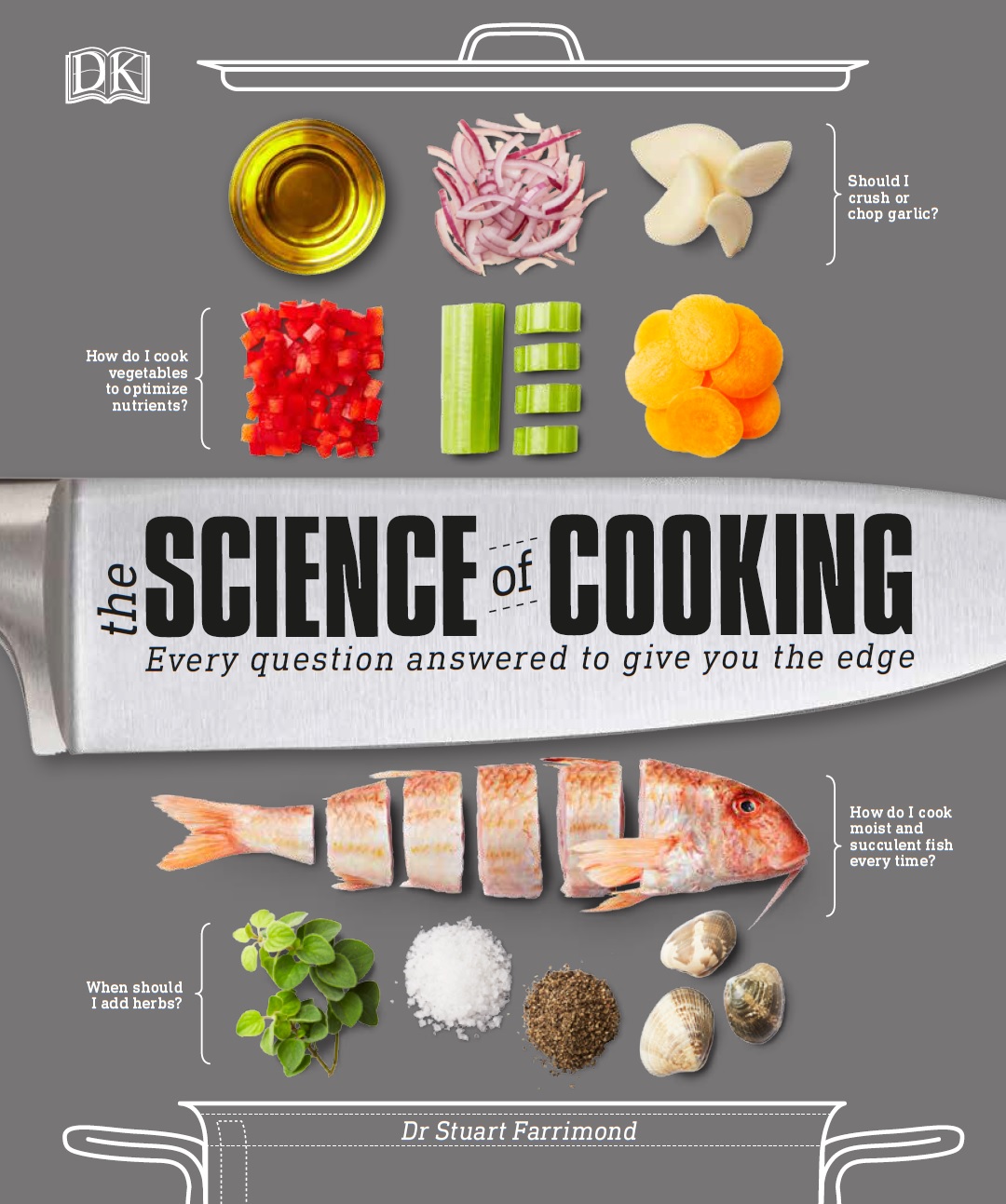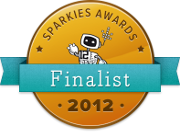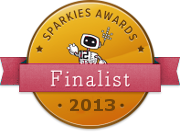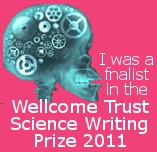![]()
 Most of us think dyslexia is a bad thing. At school I had a friend who was told by a teacher that he was “thick” and “wouldn’t achieve anything in life”. Not because he was stupid (he was, and still is, extremely intelligent) but because his reading and writing abilities were horrendous.
Most of us think dyslexia is a bad thing. At school I had a friend who was told by a teacher that he was “thick” and “wouldn’t achieve anything in life”. Not because he was stupid (he was, and still is, extremely intelligent) but because his reading and writing abilities were horrendous.
Things have thankfully changed, but probably not enough. Many consider dyslexia a disability or a disorder. And this isn’t just in popular culture: if you search through the academic literature, nine out of ten articles describe dyslexia as an impairment. (Try it yourself at Google Scholar)
Shame on us. Today’s society is so dependent on alphanumeric communication that it is difficult to see it dyslexia as anything other than disability. But our ancestors wouldn’t have seen it that way - the success of our species probably owes much to the ‘dyslexia trait’. It’s high time we all got re-educated…(myself included)
Dyslexia, not disorder
I receive a fair amount of spam emails. Since launching a crowd-sourced popular science magazine six months ago, quacks and opportunists try their luck at free publicity in the same way wasps swarm round a jam jar (US: read Jelly).
A few days ago I received an email I nearly binned. A wannabe-contributor contacted me, keen to submit articles. Within the email he cautiously confessed he had dyslexia. The email was littered with so many spelling mistakes, it read like another spam email. My initial prejudices compelled me to hit the delete key – but thankfully I didn’t.
After looking through some of this budding writer’s work, it became patently obvious that for all the linguistic imperfections, his work had some other brilliant qualities: it brimmed with personality and humour in a style most writers strive for.
Was this man alone in having a grammatical abilities substituted with other aptitudes? Of course not.
An up-to-date summary published in the Dyslexia journal outlines the many beneficial traits afforded those labelled with dyslexia:
The advantages of dyslexia
There are three main areas of strength for dyslexics:
- Increased ability to solve physical problems or assemble complex machinery
- The ability to see ‘the bigger picture’ rather than focusing on the tiny details
- Enhanced logical thinking
It appears that dyslexics tend to think pictorially and in three dimensions, rather than in words or in two dimensions. The ability to navigate routes; work with one’s hands, see a broader perspective and to solve logical problems would be amongst the most prized capabilities to our ancestors - not abstract thinking and verbal prowess. The same is true for modern day hunter-gatherers who esteem the qualities associated with dyslexia.
One in ten of us are on the spectrum of dyslexia, and it is likely the survival benefits afforded by these traits means that a predisposition to dyslexia has been preserved in our genetics.
If this is true, and dyslexic traits have been at the root of the modern homosapien, then it will always be a part of our species. But come the day when the internet shuts down and the Sat-Navs fail, we as a society will be thankful for that.
I just wish I could have said all this to that bigoted teacher.
.
Thanks for reading - feel free to comment below…
Footnote:
The issue of whether people with dyslexia have real talents over and above anyone else is a point of controversy in some circles. You can catch a snippet of this debate on this blog post.
Links:
A list of famous people with the gift of dyslexia
REFERENCES:
Ehardt, K. (2009). Dyslexia, not disorder Dyslexia, 15 (4), 363-366 DOI: 10.1002/dys.379










What an interesting piece;
I was diagnosed by my optician as dyslexic at the age of 50; up until that point I had been lazy and stupid; worst of all as in other respects I appear - I was cheeky / disrespectful to my teachers, not responding to the teaching and money expended on my education.
I can only exist in polite academic society by virtue of the invention of the spell checker, which does much to disguise my problem. I could never admit it to my university, as it is the one disability that disqualifies you from being an academic.
My recent PhD was a disaster; my tutors cannot take my work seriously because bits are misspelled, worse than that, it appears my ability at logical and spacial thinking sets me apart from those who ‘know’ things because they read them in a book.
I am the only archaeologist in the country who specializes in reverse engineering timber structures from their foundations by reconstructing their lost three dimensional relationships, potentially significant and important research. However, I cannot be taken seriously because I have a second class degree; If you can’t spell, you are clearly too stupid to be given any credence.
Sadly, peoples mind are graded by their ability at written exams, on this basis their value as human beings is determined.
I have a second class mind.
Posted by Geoff Carter | January 23, 2012, 10:46 pmThanks for your comment Geoff.
It’s brave to be so frank - so thank you.
Your story is heart-breaking. All too often I think we say to ourselves - “that sort of thing doesn’t happen in this day and age…” clearly it does. It should not be so.
I’m an idealist at heart and so would encourage you (and anyone else for that matter) to pursue their dreams. Your area of expertise sounds utterly fascinating - and I truly hope you get other opportunities - and with people who might be prepared to think differently / be more open-minded about what qualifies someone to contribute in ‘academic research’
Posted by Stuart Farrimond | January 23, 2012, 11:28 pmMy experience was much the same except I studied with the Open University and they helped me.
What makes me really mad is they way people react to what I prefer to call “non standard spelling” - its really as if a word spelled slightly differently is somehow embarassing and obscene!!!
Actually as you know these standardised spellings have only evolved in the past couple of hundred of years anyway.
I do lose patience with the non-dyslexic mindset sometimes because they do not seem to think logically or see much apart from what’s under their noses. Would you be cured of dyslexia if you could ? I wouldn’t.
Posted by Ruth Behan | January 24, 2012, 12:02 pm@ Stu ; Thank you for the sympathy, but in some ways, by trying to hide my dyslexia, I may make things worse. However, if your work involves writing reports, you assume that dyslexia would preclude you from the job. I would love to teach in higher education, but again I feel dyslexia is the one disability that precludes from being allowed near students - what if I had to write on the board!?
@Ruth - yes I think I would change it; because I did not respond to education as expected, I was sent a boarding school 4 miles from my house; so in a sense, I was excluded from normal family life because my spelling was poor!
Posted by Geoff Carter | January 24, 2012, 12:29 pmGeoff that is awful, I guess I have been lucky. ( though still struggling to get a decent job) I really wish you good luck in the future. I still think that the world would be a much poorer place without us dyslexics. My dyslexic students are always the ones with come up with original ideas.
Posted by Ruth Behan | March 13, 2012, 12:06 pmThank you Ruth - I too am struggling to get a job, any job; although I need to teach students how to understand archaeology, it is the only thing that will make sense of my life, and the work I have put in to make sure I am the best at what I do; it is only by being utterly outstanding that someone who is dyslexic might be accepted.
Posted by Geoff Carter | March 13, 2012, 1:34 pmThe organization I work for, Learning Ally, serves thousands of people with dyslexia and other learning differences. I’ve lost count of the people I’ve met who are talented, high achieving, out of the box thinkers; and many are successful in business and other undertakings. After struggling to read and learn in a conventional setting, they flourished with simple accommodations geared toward their ways of learning — and turned the whole notion of “disabillity” on its head. We’ve captured several stories to share at http://www.youtube.com/learningally .
Just today I got an email from one of our members, a dyslexic guy in Nashville, who wrote: “As a student I could not finish reading assignments on time. I began creating my own middles and endings to stories. Being denied the fruit certainly made me see the tree differently and in a strange way that opened many doors and led to me becoming known for having an original slant. But when I gained access to the world of great literature; Sandburg, Shakespeare, Rushdie, Tolstoy…., nothing would ever be the same. Without Learning ally I would be half the writer I am today.”
Posted by Doug Sprei | January 26, 2012, 9:54 pmNice video Doug. Your organisation looks like it does great work.
In terms of considering dyslexia a ‘disability’…
Verbal language is seems to be something that the human brain is ‘designed’ to do (i.e. a child will naturally learn the language of their parents); reading and writing are not (at least in the same way). Historically, written language is a relatively recent invention - and are the equivalent of ‘optional extras’ for communication (as argued in the links below)
http://www.science20.com/mark_changizi/topography_language
and here:
http://www.psychologytoday.com/blog/nature-brain-and-culture/201008/stephen-pinkers-miracle-languageand-writing
Posted by Stuart Farrimond | January 27, 2012, 9:19 pmGenerally most dyslexics are at a disadvantage to be successful . Dyslexia varies in severity . Any advantage likely varies but since you write as if the dyslexics are all the same consider graphing severity of dyslexia against the advantage of dyslexia.
I would want to be at the minimum severity and get the advantages almost free rather than at the other end where problems such as very poor executive function and short term memory are very common.
Very few individuals have the right mix of dyslexia severity and the “advantage ” to end up with a positive result.
Any idea that dyslexia is an advantage is similar to the idea that being 7ft 7 is an advantage. It is great while you are playing basketball but generally it sucks.
Posted by hayesatlbch | January 27, 2012, 5:19 pmGreat comment - thanks..
Yes, you’re right for making the point that dyslexia is very broad term. It is probably better thought of as being a ‘spectrum’ - although that’s a word that people only seem to use for autism. Perversely, the academic literature lumps ‘dyslexia’ into one boat. You’ve either got it, or you haven’t - and I don’t think that truly reflects reality. I know for example, the students I have taught have very varied abilities with language - some have the diagnosis of dyslexia, whereas others do not - and a cut-off line for ‘dyslexia’ seems somewhat arbitrary (and potentially discriminatory)
I wish there were the data to show the sort of graph you suggest, unfortunately it seems that few people have bothered to research the possible advantages of dyslexia to any great depth. Most of the published research seems to focus on trying to classify dyslexia better or work out a genetic or neurological cause.
Of course, if anyone know of any good research that could show severity of dyslexia vs. other cognitive advantages - then please do share!
Thanks for your comment, Stu
Posted by Stuart Farrimond | January 27, 2012, 8:58 pmI have found some people to look down on me for having dyslexia. It’s obviously learned behaviour, but I don’t know where it started.
Posted by Thomas | August 23, 2012, 1:45 amUm, those harsh writers you mentioned who call dyslexics “impaired” were kind enough to not call us, “outdated” and “prehistoric” as you just did. I checked out your background and why you are no longer a practicing physician and it blew me away. What a powerful story. Many of your former colleagues are dyslexic - that might be one of the reasons they often have such bad handwriting. One of the more common areas where dyslexics excel is science. Other areas where they often excel are: art, music, computers, fixing things, and architecture. These don’t really sound that obsolete to me. I’d suggest going back to medicine even if people tell you that you can’t. That kind of training is a gift and it’s selfish to not put it to good use to help others.
Posted by rek101 | October 3, 2012, 2:03 amHi Rex,
Thanks for your comment. Your comment took me by surprise - I in no way consider those classified as dyslexic ‘outdated’ or ‘prehistoric’. Neither was I suggesting that dyslexia precludes anyone from excelling in academic careers or ‘obselete’ vocations. Quite the opposite. I presently work in education - and it is painful to see young people who think themselves ‘dumb’ because of their reading/writing difficulties.
I agree with your sentiments wholeheartedly, and regret that this post gave the wrong impression.
Posted by Stuart Farrimond | October 3, 2012, 7:05 am